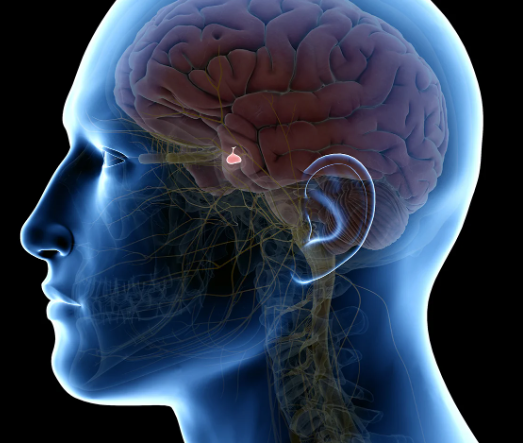Index
Introduction
FSH and LH Hormones: An Overview
The human body is a complex machine, regulated by an intricate network of systems and processes. At the core of this network, we find hormones, chemical substances produced by endocrine glands that act as messengers, controlling and coordinating activities throughout the body. Among these hormones, two deserve special attention when discussing male urological and reproductive health: the follicle-stimulating hormone (FSH) and the luteinizing hormone (LH).
What Are FSH and LH?
Produced in the pituitary gland, located at the base of the brain, FSH and LH play crucial roles in the male reproductive system. FSH is essential for sperm production, while LH stimulates the production of testosterone, the primary male sex hormone.
FSH, LH, and Urological Health
Understanding the levels and functions of FSH and LH is essential in urology. Abnormalities in these hormones can lead to a range of issues, including infertility and conditions related to low testosterone. Moreover, changes in the levels of these hormones can be indicative of other medical conditions, such as pituitary tumors.
The Importance of Hormonal Balance
Hormonal balance is key to urological and reproductive health. Normal levels of FSH and LH ensure adequate production of sperm and testosterone. However, many factors can affect this balance, including age, stress, chronic illnesses, certain medications, and lifestyle.
Why Understand FSH and LH?
Knowledge about FSH and LH is crucial for all men. Not only does it help better understand one’s own body and reproductive health, but it also enables the identification of potential health issues. For instance, infertility, a condition affecting about 15% of couples, is often linked to abnormal levels of FSH and LH. Knowing and understanding these hormones can help men identify possible health issues earlier and seek appropriate treatment.
In this article, we will delve deeper into the world of FSH and LH hormones, exploring their functions, what can go wrong, and what we can do to maintain these hormones in balance. Whether you’re a patient seeking to better understand your urological health or a healthcare professional wanting to deepen your knowledge, this article is for you.
What are FSH and LH?
FSH and LH: Crucial Hormones for Reproduction
FSH (follicle-stimulating hormone) and LH (luteinizing hormone) are two fundamental substances produced in the human body. Classified as gonadotropins, these hormones are produced by the pituitary gland and play a decisive role in regulating the reproductive system, in both men and women.
The Follicle-Stimulating Hormone (FSH)
FSH is responsible for a variety of reproductive functions. In men, FSH plays a pivotal role in regulating sperm production. This hormone acts on the testes, stimulating the Sertoli cells – structures that nourish and support the development of sperm. Without the presence of FSH, spermatogenesis (the process of sperm production) would be compromised, potentially resulting in infertility.
The Luteinizing Hormone (LH)
LH, in turn, also has an essential role in male reproductive health. This hormone acts on the Leydig cells, located in the testes, stimulating the production of testosterone – the primary male sex hormone. Testosterone is crucial for maintaining male sexual characteristics, such as a deeper voice, increased muscle mass, and sperm production.
How are FSH and LH Produced?
The production of FSH and LH is controlled by the hypothalamus, a region of the brain that acts as a kind of “conductor” of the endocrine system. When testosterone levels in the body are low, the hypothalamus releases gonadotropin-releasing hormone (GnRH). This signals the pituitary gland to produce and release FSH and LH into the bloodstream, which then travel to the testes to stimulate sperm and testosterone production.
FSH, LH, and the Feedback Cycle
It’s important to note that the production of FSH and LH is regulated by a feedback mechanism. When testosterone levels are adequate, the hypothalamus and the pituitary receive a “signal” to reduce the production of FSH and LH. This delicate balance ensures the body maintains the necessary hormonal levels for reproductive health.
Understanding the function and importance of FSH and LH, it becomes clear the essential role these hormones play in male urological and reproductive health. In the next segment, we will delve deeper into the role of FSH and LH in male reproductive health, including the impact these hormones have on sperm and testosterone production. Furthermore, we will explore how the regulation of these hormones can be affected by various factors, and what this means for overall male health and fertility.
The Role of FSH and LH in Male Reproductive Health
FSH and Sperm Production
As previously mentioned, FSH is crucial for sperm production in men. This hormone acts on the Sertoli cells in the testes, which are fundamental for the maturation of sperm. A lack of FSH can result in a decrease in sperm count, which can lead to infertility.
LH and Testosterone Production
LH, in turn, is responsible for stimulating the Leydig cells in the testes to produce testosterone. Testosterone is the primary male sex hormone, responsible for the development of male sexual characteristics and sperm production. Inadequate levels of LH can lead to a reduction in testosterone production, which can result in a range of issues, including decreased libido, erectile dysfunction, and reduced muscle mass.
FSH, LH, and Male Fertility
FSH and LH are fundamental for male fertility. A change in the levels of either of these hormones can result in fertility issues. For example, low levels of FSH can result in reduced sperm production, while low levels of LH can lead to decreased testosterone production, both of which can cause infertility.
It’s important to remember that while FSH and LH play significant roles in male reproductive health, they are just two pieces of the complex hormonal puzzle that regulates health and reproductive function. In the next segment, we will discuss what are considered normal levels of FSH and LH and how these levels can be affected by various factors.
Normal Levels of FSH and LH
What Are the Normal Levels of FSH and LH in Men?
FSH and LH levels are measured in international milliunits per milliliter (mIU/mL). According to the reference values used by most laboratories, normal FSH levels for adult men range from 1.5 to 12.4 mIU/mL. For LH, the normal levels typically fall between 1.7 to 8.6 mIU/mL.
However, it’s important to emphasize that these values can vary from one laboratory to another and can also be influenced by factors such as age, health conditions, and the point in the hormonal cycle when the test is conducted.
Variations in FSH and LH Levels
FSH and LH levels can vary throughout the day, usually being higher in the morning and decreasing as the day progresses. They can also be influenced by factors such as stress, diet, and the use of certain medications.
Moreover, specific health conditions can cause changes in FSH and LH levels. For instance, conditions affecting the pituitary gland, like tumors, can lead to elevated levels of these hormones. On the other hand, conditions that affect the testes, like orchitis (inflammation of the testicles), may result in lower levels.
The Impact of FSH and LH Level Variations on Urological Health
Variations in FSH and LH levels can significantly impact urological health. Elevated FSH levels, for example, may indicate testicular damage or insufficiency, which can lead to issues like infertility. Elevated LH levels, on the other hand, might signal a deficiency in testosterone production, which can manifest in symptoms like decreased libido and erectile dysfunction.
Conversely, low levels of FSH and LH can indicate problems with the pituitary gland or hypothalamus, which are responsible for regulating the production of these hormones. This too can result in a range of health issues, including infertility and decreased libido.
In summary, maintaining appropriate levels of FSH and LH is crucial for male urological health. In the next segment, we’ll discuss how the levels of these hormones are measured and what can be done to correct potential imbalances.
When FSH and LH Levels Are Outside the Norm
Medical Conditions Associated with Abnormal FSH and LH Levels
Various medical problems can be linked to abnormal levels of these hormones. As previously mentioned, FSH and LH are essential for male reproductive function, so any changes in their levels can impact male fertility.
Elevated FSH levels, for instance, are often associated with testicular insufficiency, which can be caused by conditions like orchioepididymitis (inflammation of the testicles and the epididymis), excessive alcohol consumption, the use of certain medications, and exposure to radiation or environmental toxins.
Elevated LH levels, on the other hand, are typically a sign that the testicles aren’t producing testosterone properly, a condition known as primary hypogonadism. This can be caused by a variety of conditions, including orchitis, testicular trauma, and certain genetic conditions.
Conversely, low levels of FSH and LH might indicate a problem with the pituitary gland or the hypothalamus, which are the brain areas responsible for regulating these hormones. Causes can include pituitary tumors, genetic conditions, head traumas, and the use of specific medications.
Symptoms and Signs that Something Might Be Wrong
Now that we understand the medical conditions that may be linked to abnormal FSH and LH levels, it’s vital to recognize the signs and symptoms that might indicate an issue.
Abnormally high or low levels of these hormones can result in a range of symptoms. Among the most common are decreased libido, erectile dysfunction, infertility, excessive fatigue, loss of muscle mass, and reduced body hair growth. In some cases, men might also experience breast enlargement, a condition known as gynecomastia.
If you or someone you know is experiencing any of these symptoms, it’s crucial to seek medical attention as soon as possible. In the next segment, we’ll discuss how these hormonal levels are measured and what treatment options are available to help balance FSH and LH levels.
Testing FSH and LH Levels
How and When FSH and LH Levels Are Tested
FSH and LH levels are typically tested through a simple blood test. This test is carried out in a laboratory and requires a blood sample to be drawn from a vein in the arm. The blood is then analyzed to determine the levels of these hormones.
These tests are usually ordered when a man is experiencing fertility issues or when there’s suspicion that he might have a hormonal imbalance. Additionally, FSH and LH levels might be measured as part of a broader hormonal health assessment, which could include the measurement of other hormones, like testosterone.
What to Expect from an FSH and LH Test
The FSH and LH test is a relatively straightforward and quick procedure. On the day of the test, you’ll be asked to go to the laboratory, where a healthcare professional will collect a sample of your blood. This sample will then be sent for analysis, and the results are typically ready within a few days.
In terms of preparation, there are generally no special requirements ahead of the test. However, it’s always a good idea to follow guidelines provided by your doctor or the laboratory. In some cases, you might be advised to avoid eating or drinking anything except water for a certain period before the test.
The interpretation of the test results should be conducted by a qualified healthcare professional. As previously mentioned, normal levels of FSH and LH can vary depending on several factors, including age and the time of day. Furthermore, it’s important to remember that having FSH and LH levels outside the normal range doesn’t necessarily indicate an issue. The full clinical context should be taken into account when interpreting the results.
In the next segment, we will explore treatment options available for men with FSH and LH levels outside the typical range.
Treating FSH and LH Imbalances
Treatment Options for FSH and LH Imbalances
The treatment for FSH and LH imbalances depends on the underlying cause of the imbalance. If the imbalance is caused by an issue with the hypothalamus or the pituitary gland, treatment might involve medications that help regulate the production of these hormones.
If the imbalance is caused by an issue with the testicles, treatment might involve addressing the underlying problem. For example, if the problem is caused by inflammation, the treatment might include anti-inflammatory medications. If it’s due to trauma, surgical treatment may be necessary.
In some cases, if the hormonal imbalance is contributing to infertility, assisted reproduction may be recommended, such as intrauterine insemination (IUI) or in vitro fertilization (IVF).
How Urology Can Assist in Diagnosis and Treatment
Urology plays a crucial role in diagnosing and treating FSH and LH imbalances. A urologist is a health specialist focused on diagnosing and treating conditions that affect the male urinary and reproductive system. This includes conditions that can impact FSH and LH levels, such as testicular insufficiency and hypogonadism.
As a urologist, I, Dr. Petronio Melo, have the experience and expertise to assess your symptoms, order the appropriate tests, and based on your results, develop a tailored treatment plan. If you are concerned about your FSH and LH levels or are experiencing symptoms like low libido, erectile dysfunction, fatigue, or infertility, I am here to help.
In the next segment, we will conclude our discussion on FSH and LH, emphasizing the importance of maintaining a healthy lifestyle for proper hormonal regulation.
Conclusion
Throughout this article, we discussed the crucial importance of the FSH and LH hormones in male urological health. Let’s recap the main points.
The Importance of FSH and LH Hormones
FSH and LH are hormones produced by the pituitary gland that play vital roles in regulating male reproductive function. FSH is essential for sperm production, while LH stimulates the production of testosterone.
Normal Levels and Imbalances of FSH and LH
The normal levels of these hormones can vary depending on various factors, including age and time of day. Imbalances in these hormones can be caused by a range of medical conditions and can lead to symptoms such as infertility, erectile dysfunction, and low libido.
Testing and Treatment of FSH and LH Imbalances
FSH and LH levels are typically tested via a blood test. Treatment for imbalances in these hormones depends on the underlying cause and can include medications, surgical treatments, or assisted reproduction techniques.
As a urologist, my role is to help diagnose and treat hormonal imbalances, ensuring you receive the best care possible. If you are concerned about your FSH and LH levels or are experiencing symptoms that might indicate a hormonal imbalance, I invite you to contact my office to schedule an appointment.
Maintaining Urological Health
While this article mainly focuses on FSH and LH, it’s important to emphasize that urological health involves much more than just these two hormones. Maintaining a healthy lifestyle, including a balanced diet, regular exercise, and routine medical check-ups, is vital to ensure optimal urological and reproductive health.
I hope this article provided a clear and understandable insight into the role of FSH and LH in male urological health. As always, I’m here to answer any questions you might have and to assist you in your health journey.
Thank you for reading, and see you next time.




